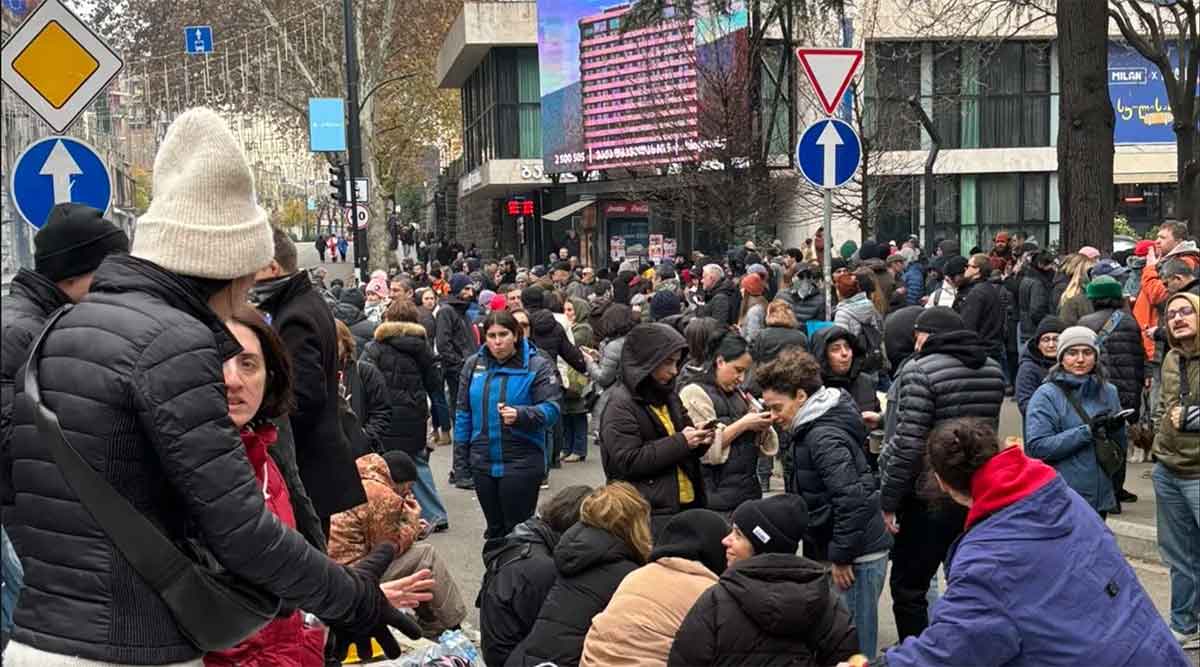Tbilisi has become the epicenter of escalating political unrest as protests intensify across the city, marked by tear gas, arrests, and defiant chants of “until the end” from demonstrators. What began as localized gatherings has transformed into a multi-front movement, with protests spreading to key areas like Rustaveli Avenue, Chavchavadze Avenue, and beyond.
The night of November 30 to December 1 saw significant clashes between protesters and riot police near the Georgian parliament. Protesters stood firm despite heavy use of water cannons and tear gas, with crowds retreating only when forcibly pushed towards Republic Square. Arrests were made, though the exact number remains unclear, and demonstrators halted a fire truck transporting water for cannons, symbolizing their resilience.
By December 1, demonstrators had shifted their focus to the Georgian Public Broadcaster, accusing the station of biased reporting and suppressing dissenting voices. Protesters, including journalists and public figures, demanded access to airtime, blocking Kostava Street near the broadcaster’s headquarters to amplify their calls for media freedom.
Protests are no longer confined to Tbilisi. Cities like Kutaisi, Batumi, and Gori have joined the movement, highlighting nationwide discontent. Volunteers are playing a critical role, providing food and support to demonstrators at various locations, including the Vake district near Tbilisi State University, where activists continue to block intersections.
Amid the unrest, Georgian Ambassador to the United States Davit Zalkaliani resigned, citing disagreement with Georgian Dream’s foreign policy shift. This marks another layer of instability as the government faces both domestic and international scrutiny.
Adding to the political tension, the Ministry of Internal Affairs announced the arrest of a political party member for damaging surveillance equipment at the parliament building during a rally. This incident underscores the rising stakes in Georgia’s ongoing political crisis.
With demonstrations planned near parliament, Bidzina Ivanishvili’s residence, and public spaces across Georgia, the protests show no sign of slowing. The growing nationwide movement underscores deep dissatisfaction with the government, media control, and law enforcement tactics. As tensions rise, the world watches closely to see how Georgia navigates this critical moment in its political landscape. Will the government choose dialogue or further escalation? Only time will tell.







































